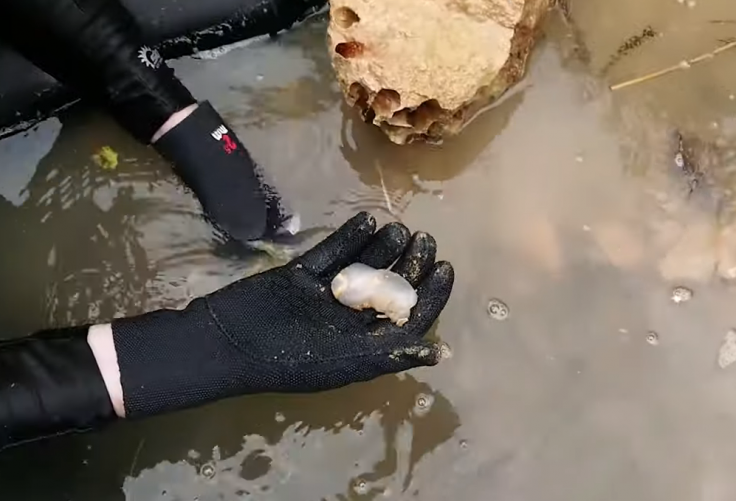
Shipworms, also called pileworms, are common in the ocean bed and seas, whose unique food habit in the past centuries led many ships to sink in the oceans. These are the same worms which eat wooden ship hulls, wharves, and other submerged wooden structures. Beating them all, recently scientists discovered similar creatures which live on eating rocks and pooping out sand.
Researchers first spotted this unique shipworm, called Lithoredo abatanica in 2006 in thumb-size burrows in the limestone banks of the Abatan River in the Philippines but they started to study the organism in detail only from last year.
The description given by the researchers shows that the newly found unusual shipworm, lives in the freshwater and looks like a white, thick wormlike creature, which can grow up to one meter and surprisingly their diet included not woods but rocks. They poop out sand, though.
The researchers stated that these rock-eating shipworms are different from the usual wood-eating worms. The team of experts, who submitted their report on Tuesday, June 18 mentioned that all shipworms have two shrunken shells that have been modified into drill heads.
They also added that while the usual shipworm's hidden teeth cover the shells in the wood eater, but the rock-eating newly found shipworm has dozens of thicker, millimetre-size teeth which are enough to scrap away rocks.
The usual marine shipworms store the eaten wood at a specific digestive sack, where the bacteria degrade it. The stone eating shipworm still ingests what it finds out on its way to make its protective burrow, but it lacks both the sack and its bacteria.
Researchers believe that this worm may have received ingestion characteristics from its ancestors but it depends on other bacteria living in its gills to produce nutrients or food consumed by a siphon at the clam's back end for nourishment.
The discovery of Lithoredo abatanica raised a huge concern among the experts. Even though its burrowing helps to create great homes for crabs, snails, and fish, the researchers believe that it may also cause harm, in the future. It can bring down rocky mountains and change the course of major rivers, suggests one narration.
The report was published in the Proceedings of the Royal Society.








